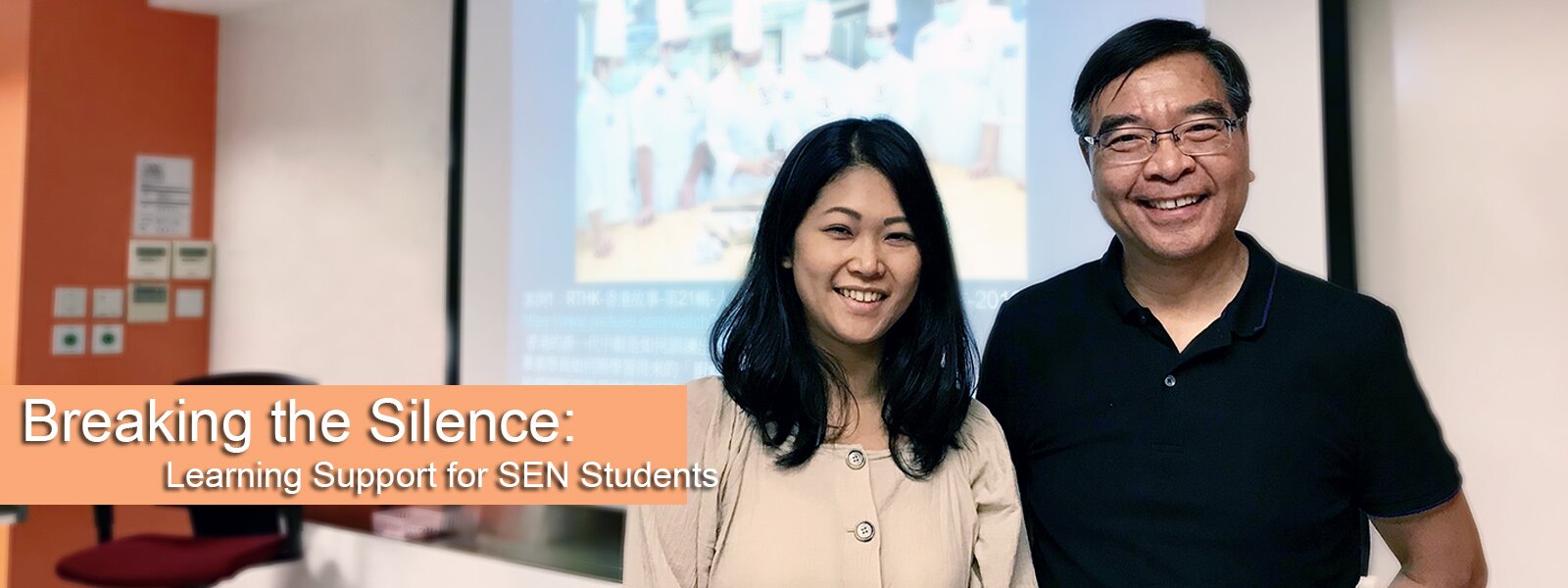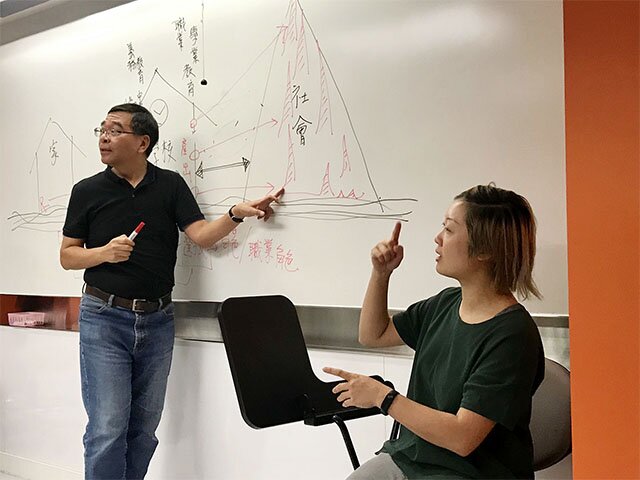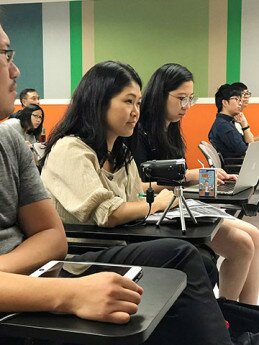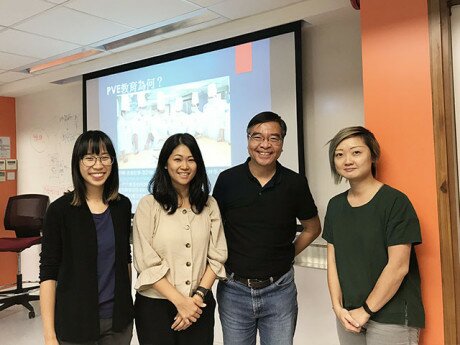Breaking the Silence: Learning Support for SEN Students

In a classroom on a weekday evening, every student listens attentively to a lecture about the relationship between education and society, except for Brenda Yu Wai-Lam, who was born with hearing loss.
Growing up in a deaf family, Brenda went through different paths after completing secondary school. She eventually landed in a research centre for sign linguistics and deaf studies at a local university about a decade ago, before becoming a sign language teacher.
Since she didn’t have proper teacher training, last year, Brenda decided to enrol in The Education University of Hong Kong (EdUHK) and became a student in the Bachelor of Education (Honours) in Professional and Vocational Education.
To cater for Brenda’s special learning needs, EdUHK arranged for two sign language interpreters to provide simultaneous interpretation in class. To ensure the accuracy of the interpretation, the two interpreters need to familiarise themselves with all the teaching materials in advance, and have to switch every 15 minutes to ensure nothing is missed in each lesson.
There is a silent understanding between Brenda and the two interpreters. If Brenda frowns, showing signs of misunderstanding, the other interpreter who is taking a break immediately supplements the interpretation with writing. Even in group discussions, when students speak up loudly and enthusiastically, the interpreters translate their discussions into sign language, making sure that Brenda can catch every detail without missing a beat.
Living in a silent world, Brenda cherishes every opportunity for education. In addition to recording the sign language interpretation with a camera, she hires an assistant to jot down notes for her. Every week, she spends nearly 10 to 15 extra hours revising the class materials, making sure that she is on top of everything. “Striking a balance between working and learning is indeed stressful,” she said. “But I’m thankful for the opportunities provided by the EdUHK. I will treasure this valuable opportunity and make an all-out effort to perform well.” After exploring topics like pedagogy, curriculum design and assessment skills, Brenda is able to effectively practise the knowledge and skills she learned in class in the workplace.
Deaf persons are often described as having ‘hearing impediment’ by the general public, but for Brenda, ‘deaf’ is a more accurate term, because hearing loss per se is not an obstacle. She thinks the term ‘deaf’ better reflects the unique culture of their community. “As we all live under the same sky, the right of deaf people to a proper education should be fairly recognised,” she added.
Mr Li Chin-wa, Senior Lecturer in the Department of International Education and one of Brenda’s teachers, said, “Though students enjoy equal education opportunities, the effect of learning differs from person to person. Without extra support, students with special education needs (SEN) like Brenda may not be able to achieve similar learning outcome as other students. Thus, schools should step up their efforts to develop a long-term policy to help SEN students integrate into mainstream education.” Through the provision of sign language interpreters, Brenda is able to share her thoughts with other students, narrowing the invisible distance between her and her classmates, Mr Li added.
Since 2013, four deaf students, including Brenda, have been enrolled in EdUHK programmes. Committed to promoting equal opportunities on the campus, the University has tailored a wide array of support services for SEN students, according to their individual needs. These include sign language interpreters, visual and hearing ancillary aids, word enlargement in exam papers, and longer examination duration, among others.
Photo Gallery
Download all images





